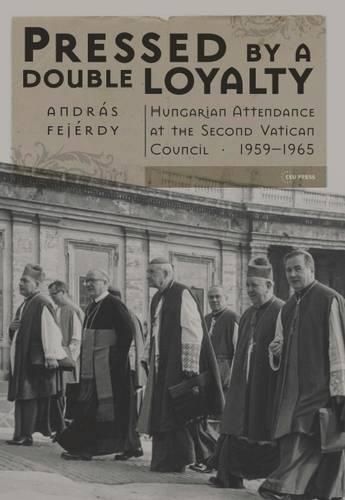Readings Newsletter
Become a Readings Member to make your shopping experience even easier.
Sign in or sign up for free!
You’re not far away from qualifying for FREE standard shipping within Australia
You’ve qualified for FREE standard shipping within Australia
The cart is loading…






The Second Vatican Council is the single most influential event in the twentieth-century history of the Catholic Church. The book analyzes the relationship between the Council and the Ostpolitik of the Vatican through the history of the Hungarian presence at Vatican II. Pope John XXIII, elected in 1958, was a catalyst. He thought that his most urgent task was to renew contacts with the Church behind the iron curtain. Hungarian participation at the Council was also made possible by the new pragmatic attitude in Hungarian church politics. After the crushing of the 1956 Revolution, churches in Hungary thought that the regime would last and were willing to compromise. Hungary did not consider Vatican II primarily an ecclesiastical event. It was considered a component of the negotiations between the Holy See and the Kadar regime: during the Council Hungary became the experimental laboratory of the Vatican’s new eastern policy. Was it a Vatican decision or a Soviet instruction? Fejerdy suggests that it was a decision of the Holy See.
$9.00 standard shipping within Australia
FREE standard shipping within Australia for orders over $100.00
Express & International shipping calculated at checkout
The Second Vatican Council is the single most influential event in the twentieth-century history of the Catholic Church. The book analyzes the relationship between the Council and the Ostpolitik of the Vatican through the history of the Hungarian presence at Vatican II. Pope John XXIII, elected in 1958, was a catalyst. He thought that his most urgent task was to renew contacts with the Church behind the iron curtain. Hungarian participation at the Council was also made possible by the new pragmatic attitude in Hungarian church politics. After the crushing of the 1956 Revolution, churches in Hungary thought that the regime would last and were willing to compromise. Hungary did not consider Vatican II primarily an ecclesiastical event. It was considered a component of the negotiations between the Holy See and the Kadar regime: during the Council Hungary became the experimental laboratory of the Vatican’s new eastern policy. Was it a Vatican decision or a Soviet instruction? Fejerdy suggests that it was a decision of the Holy See.